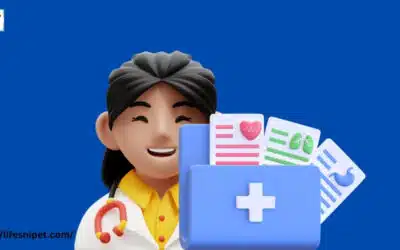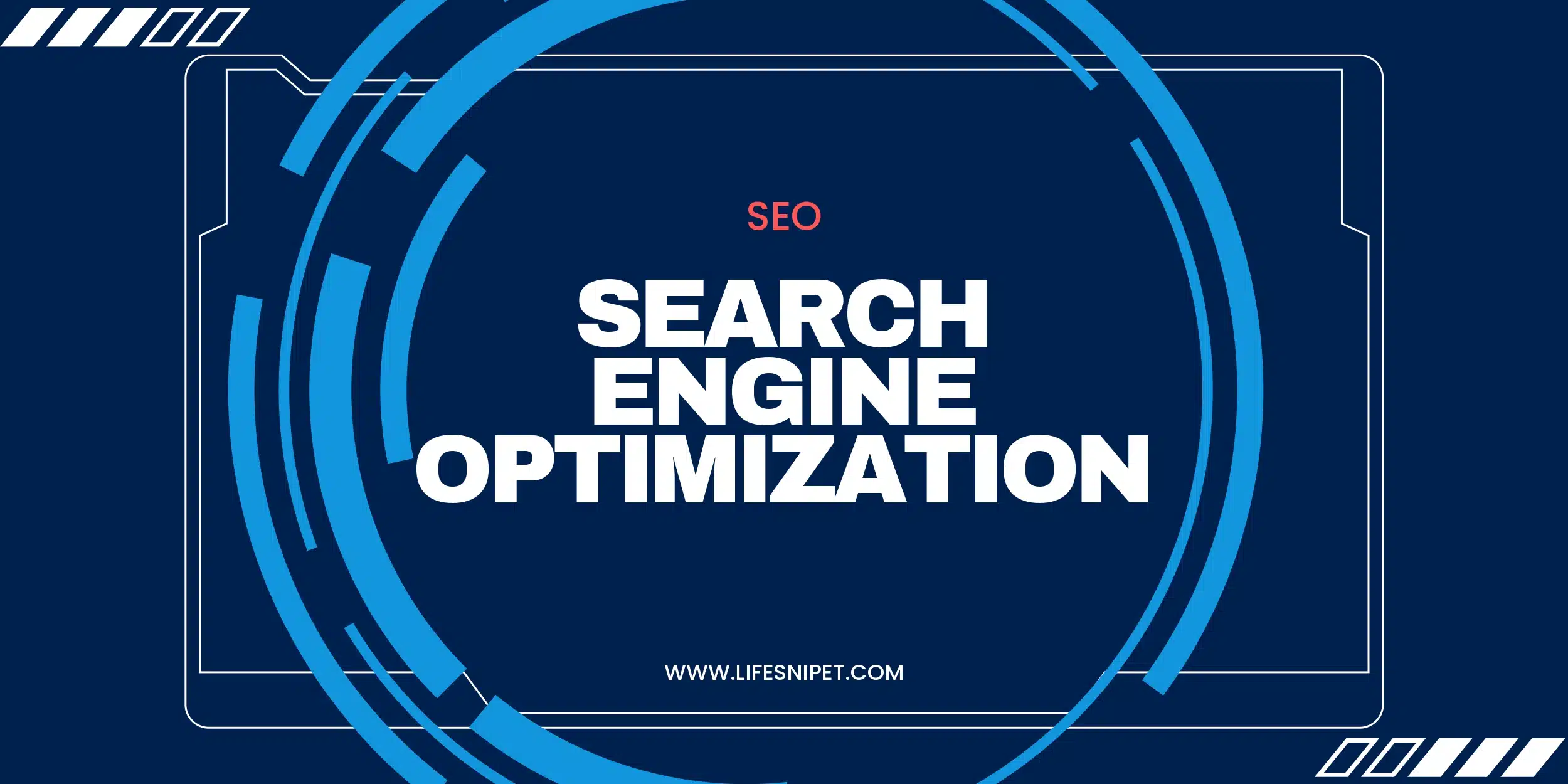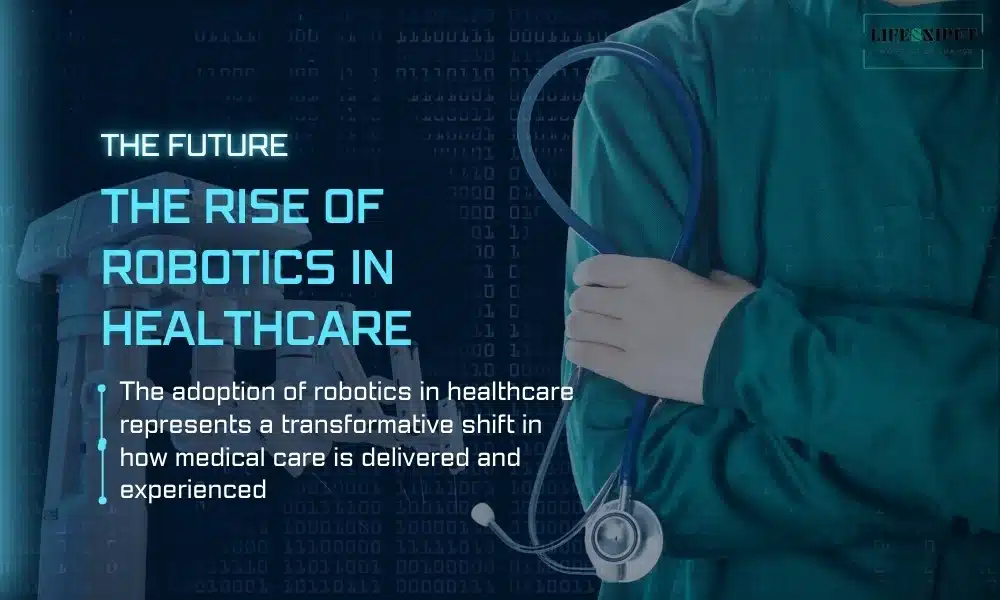The use of generative artificial intelligence platforms in healthcare has increased dramatically in the last several years, and their success rate in medical imaging analysis is astounding—it stands at over 80%. By improving diagnostic accuracy by up to 75%, expediting patient treatment, and encouraging scientific breakthroughs, these cutting-edge platforms are completely changing the medical environment. This blog post explores the potential benefits, applications, and optimistic future of generative artificial intelligence in the medical industry, highlighting how it is transforming the field.
In the ever-evolving healthcare geography, the integration of artificial intelligence( AI) is reshaping how we approach medical diagnostics, treatment planning, and patient care. One remarkable facet of this AI revolution is the emergence and growth of generative artificial intelligence platforms. This blog explores the profound impact of these platforms on the healthcare industry, visioning a future where AI doesn’t only help but laboriously contributes to medical decision-making.
Defining Generative Artificial Intelligence Platforms In Healthcare
Generative Artificial Intelligence( GAI) in healthcare represents a transformative leap in the operation of AI technology. Unlike traditional AI systems that calculate on predefined patterns within massive datasets, generative AI possesses the unique capability to produce new content autonomously. In the healthcare environment, this means that these platforms can’t only dissect medical data but also induce new perceptivity, and suppositions, and indeed propose innovative treatment plans.
GAI goes beyond bare pattern recognition, fostering a position of creativity and rigidity pivotal for addressing the dynamic and complex nature of medical scripts. This paradigm shift opens new midair in diagnostics, medicine discovery, and substantiated drugs, allowing healthcare professionals to influence AI as a dynamic and creative collaborator in perfecting patient issues. As healthcare assiduity embraces the eventuality of generative AI, it heralds a future where invention and creativity play a central part in enhancing the quality and effectiveness of healthcare delivery.
The Evolution of Generative Artificial Intelligence Platforms In Healthcare
The elaboration of Generative Artificial Intelligence( GAI) within the healthcare geography reflects a remarkable journey from a probative tool to a pioneering force shaping medical practices. originally conceived to streamline routine tasks, GAI platforms have experienced a transformative elaboration, conforming to handle decreasingly complex medical scripts. However, heart attacks can be prevented with good food and regular exercise.
From interpreting medical imaging with unknown perfection laboriously contributing to medicine discovery and proposing individualized treatment plans, the growth of GAI showcases its versatility. In the early stages, these platforms stoked mortal decision- timber, abetting healthcare professionals in tasks like data analysis and interpretation.
Over time, still, they’ve transcended their original places, now enjoying the capability to induce suppositions, propose innovative results, and laboriously contribute to medical decision-making processes. This elaboration signifies a shift towards a more dynamic, creative, and integral role for GAI in healthcare, revolutionizing the assiduity’s approach to diagnostics, treatment planning, and patient care. As GAI continues to advance, it holds the implicit to revise medical exploration and usher in a new period of substantiated and largely effective healthcare solutions.
Medical Imaging Interpretation
Medical Imaging Interpretation has experienced a transformative revolution with the integration of Generative Artificial Intelligence( GAI). This elaboration has significantly enhanced the delicacy and effectiveness of individual processes. GAI platforms exceed in decoding intricate details within medical images, similar to X-rays, CT reviews, and MRIs.
The essential capability of these platforms to fete subtle anomalies, frequently inappreciable to the mortal eye, has revolutionized individual radiology. By using advanced algorithms and machine literacy, GAI ensures not only rapid-fire and precise identification of abnormalities but also aids in the early discovery of conditions.
This transformative technology is particularly poignant in fields like oncology, where early opinion is vital. Similarly, GAI assists radiologists in creating detailed and comprehensive reports, contributing to further informed decision-making by healthcare professionals. The integration of GAI in medical imaging interpretation not only expedites the individual process but also elevates the standard of patient care by furnishing accurate and timely perceptivity, eventually perfecting issues and fostering a new period in individual radiology. As GAI continues to advance, its part in medical imaging interpretation is poised to review the geography of individual drugs.
Generative Artificial Intelligence in Drug Discovery and Development
Generative Artificial Intelligence( GAI) has become a transformative force in the realm of medicine discovery and development, revolutionizing the traditional pharmaceutical geography. This innovative technology expedites the medicine development process by assaying vast datasets with unknown speed and delicacy.
GAI platforms retain the capability to prognosticate implicit medicine campaigners, propose molecular structures, and optimize chemical compositions, significantly reducing the time and coffers traditionally needed for bringing new specifics to request. The integration of GAI in medicine discovery enhances experimenters’ capability to identify promising composites with remedial eventuality, adding to the effectiveness of preclinical and clinical trials.
This acceleration is particularly pivotal in addressing critical healthcare requirements, similar to arising contagious conditions or fleetly evolving health heads. GAI not only streamlines the identification of new medicine campaigners but also contributes to the repurposing of being specific for new remedial purposes. By employing the creative and logical capabilities of GAI, medicine discovery, and development enter a new period of invention, where the conflation of effective specifics becomes not just a scientific bid but a cooperative cooperation between mortal imagination and artificial intelligence.
Personalized Treatment Plans
Generative Artificial Intelligence( GAI) has steered a transformative period in healthcare by contributing to the expression of individualized treatment plans. This invention involves the assimilation and analysis of vast case data, including inheritable information, medical history, and life factors, to produce acclimatized and case-specific treatment approaches. GAI platforms exceed in decoding intricate connections within different datasets, enabling the identification of optimal remedial interventions.
By using advanced algorithms, these platforms not only consider individual variations in complaint donations but also prognosticate responses to specific treatments. This approach ensures that healthcare professionals can design treatment plans that aren’t only effective but also minimize adverse goods, therefore optimizing patient issues.
In Today’s era, silent heart attacks are also very common and we will discuss that in depth in another article. The capability of GAI to acclimatize and learn from real-time case data contributes to the dynamic nature of individualized treatment plans, allowing for nonstop refinement and adaptation as patient conditions evolve. In the realm of perfection drugs, where one-size-fits-approaches are becoming obsolete, GAI emerges as a groundbreaking tool, fostering a healthcare geography where treatments are as unique as the individualities entering them, eventually leading to further effective and patient-centric care.
Data Security and Privacy Concerns in Generative Artificial Intelligence
As the healthcare assiduity decreasingly integrates Generative Artificial Intelligence( GAI) for data-driven perceptivity, the consummate concern revolves around data security and sequestration. The sensitive nature of medical information necessitates robust safeguards to cover patient confidentiality. GAI platforms operate by recycling vast datasets, frequently including particular health records, inheritable information, and individual data.
Addressing data security enterprises requires strict encryption protocols, secure storehouse mechanisms, and comprehensive access controls. Healthcare associations must prioritize compliance with strict sequestration regulations, similar to the Health Insurance Portability and Responsibility Act( HIPAA), to ensure the responsible running of patient data. also, the ethical use and responsible stewardship of this information are imperative, challenging translucency in data operation programs and unequivocal patient concurrence. Striking a delicate balance between using the eventuality of GAI for medical advancements and securing patient sequestration is pivotal.
Continued advancements in encryption technologies, secure data- data-participating fabrics, and ethical guidelines will be necessary in addressing these enterprises, fostering a healthcare terrain where invention and case sequestration attend harmoniously. As GAI continues to evolve, a loyal commitment to data security and sequestration principles will be essential to make and maintain trust in the healthcare ecosystem.
Explainability and Trustworthiness
The integration of Generative Artificial Intelligence (GAI) into healthcare raises significant concerns related to explainability and responsibility. Unlike conventional algorithms whose decision-making processes are frequently transparent, GAI operates on complex neural networks, making it innately less interpretable.
The lack of clear explanations for the explanation behind AI- AI-generated opinions poses challenges in gaining trust from healthcare professionals and cases. The imperative for secure AI in healthcare authorizations is a commitment to translucency in algorithmic processes. icing that GAI models are resolvable involves developing interpretability ways that clarify the black-box nature of these systems. responsibility is further established by rigorous confirmation and testing of GAI algorithms, demonstrating their trustability across different datasets and medical scripts.
Ethical considerations come consummate, emphasizing the responsible deployment of GAI in healthcare settings. Clear communication regarding how GAI complements mortal decision- timber and enhances patient care fosters trust among healthcare interpreters and cases. As the healthcare assiduity navigates the objectification of GAI, prioritizing explainability and responsibility not only ensures the ethical use of AI but also paves the way for a harmonious integration that benefits both healthcare professionals and the individuals they serve.
GAI as a Collaborative Partner
Generative Artificial Intelligence( GAI) emerges not as a replacement but as a cooperative partner in the healthcare sphere, unnaturally reshaping the relationship between technology and mortal moxie. Rather than displacing healthcare professionals, GAI enriches its capabilities by furnishing advanced data analysis, pattern recognition, and prophetic modeling.
The community between mortal intuition and the logical prowess of GAI creates a cooperative dynamic that enhances the overall quality of patient care. This cooperative partnership is particularly apparent in diagnostics, where GAI aids in interpreting complex medical images, offering perceptivity that rounds the expertise of radiologists and pathologists.
In treatment planning, GAI contributes by generating substantiated remedial approaches grounded on intricate case data, empowering clinicians with acclimatized insights. Importantly, GAI’s nonstop literacy capacity ensures that it evolves alongside medical advancements, staying current with the rearmost exploration and clinical guidelines. As a cooperative partner, GAI not only expedites processes but also allows healthcare professionals to concentrate on nuanced aspects of patient care, fostering a harmonious integration that harnesses the strengths of both artificial intelligence and mortal expertise for the betterment of global healthcare.
Enhanced Research Capabilities
The integration of Generative Artificial Intelligence( GAI) into healthcare isn’t just a boon for clinical operations but also heralds a significant improvement in exploration capabilities. GAI brings a transformative dimension to medical exploration by offering advanced logical tools, accelerating data interpretation, and generating new suppositions.
Researchers can work the vast processing power of GAI to sift through expansive datasets, identify intricate patterns, and gain perceptivity that might escape traditional exploration approaches. also, GAI’s capability to induce suppositions and prognosticate implicit issues contributes to experimental design and optimization. In the realm of medicine discovery, GAI assists experimenters in relating promising campaigners and understanding intricate molecular relations.
The cooperative cooperation between researchers and GAI fosters a terrain where scientific inquiry isn’t only expedited but also reaches new heights of invention. As GAI continues to evolve, its part in exploration is poised to revise the pace, depth, and breadth of scientific disquisition, opening avenues for groundbreaking discoveries that hold the eventuality to reshape the geography of drugs and ameliorate global health issues.
Conclusion:
In conclusion, the growth of generative artificial intelligence platforms signifies a paradigm shift in healthcare dynamics. From revolutionizing diagnostics to laboriously contributing to treatment planning, these platforms hold immense promise. As we embrace this transformative technology, it’s pivotal to address challenges, uphold ethical considerations, and fantasize about a future where AI and mortal expertise synergize for the betterment of global healthcare.
FAQs:
1. How secure is patient data in generative artificial intelligence?
Patient data security is a top priority. Generative AI platforms apply robust encryption and access control measures to guard sensitive medical information.
2. Can generative AI fully replace mortal clinicians?
No, the role of generative AI is to unite with mortal clinicians. It enhances their capabilities, furnishing precious insights and recommendations.
3. How do generative AI platforms handle different patient populations?
Generative AI platforms are designed to adapt to different populations by continuously learning from varied datasets, ensuring inclusivity in treatment approaches.
4. What measures are in place to ensure the transparency of AI decision-making?
Efforts are underway to develop transparent AI models. enterprise concentrates on creating interpretable algorithms and ensuring that AI- AI-generated opinions are resolvable to healthcare professionals.
5. How can healthcare professionals integrate generative artificial intelligence into their practice?
Integrating generative AI involves training and collaboration. Healthcare professionals can suffer AI training programs to effectively work these platforms in their diurnal practice.

Welcome to LifeSnipet! At LifeSnipet, we’re your ultimate source for the latest health updates. Specializing in health and fitness-related diseases, we delve deep into Ayurvedic techniques, providing you with a comprehensive understanding of well-being. Explore our real-time updates, detailed articles, and ancient Ayurvedic wisdom for a holistic approach to health. Embark on a journey to a healthier, vibrant life with LifeSnipet – where your well-being is our priority!











